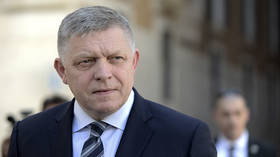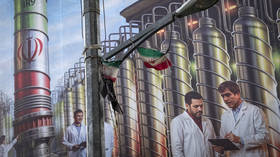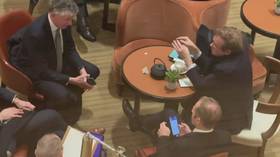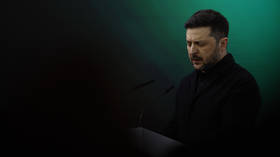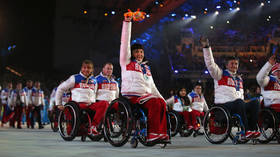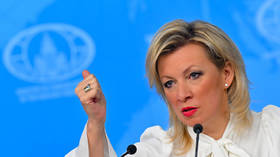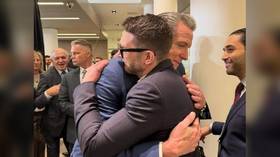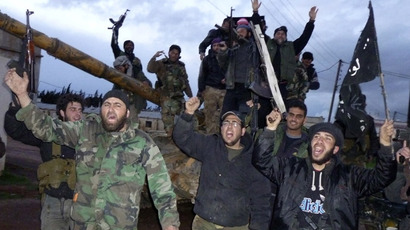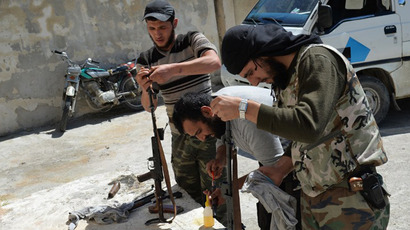Moscow disappointed political games prevented investigation into chemical weapons use in Syria
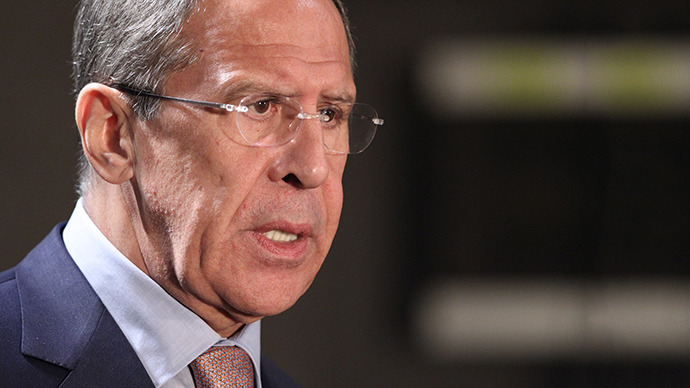
Russia’s Foreign Minister Sergey Lavrov stressed that “political games” prevented Russia from investigating the data on the use of toxic substances in Aleppo: the UN Secretariat couldn’t respond promptly to Moscow’s demand to look into the matter.
In March, the Syrian government invited the United Nations to investigate possible chemical weapons use in the Khan al-Assal area of rural Aleppo. Military experts and officials said a chemical agent, most likely sarin, was used in the attack which killed 26 people, including government forces.
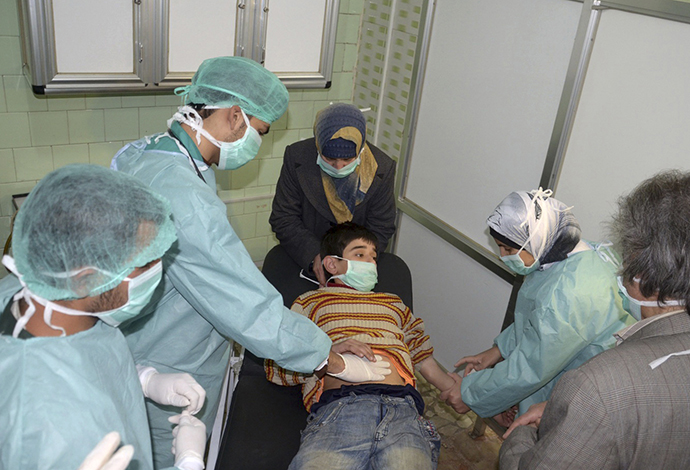
Several countries, including Israel, the UK, France and the US – all vocal critics of Syrian President Bashar Assad – all claimed they had evidence that chemical weapons were used in Syria.
Damascus denied that a chemical attack was carried out by the Syrian army, blaming the rebels and Turkey for the incident: “The rocket came from a placed controlled by the terrorist and which is located close to the Turkish territory. One can assume that the weapon came from Turkey,” Syrian Information Minister Omran al-Zoabi alleged in an interview with Interfax news agency.
Lavrov spoke following the reports that Turkish security forces found a 2kg cylinder with sarin gas after searching the homes of Syrian militants from the Al-Qaeda linked Al-Nusra Front who were previously detained.
The sarin gas was found in the homes of alleged Syrian militants, who were reportedly planning a terrorist attack on the southern Turkish city of Adana.
Russia expressed concern over the incident, urging for a thorough investigation into the matter.
Almost a month ago, the Syrian Deputy Foreign Minister Faisal Muqdad said that Damascus was ready to have the UN investigation team look into alleged chemical weapons use in Syria.
“We were ready and we are always ready, right now, to receive the delegation that was set up by [UN Secretary-General] Ban Ki-moon to investigate what happened in Khan al-Assal,” Muqdad said, referring to the March 19 incident near Aleppo.
Syrian rebels are accused of using a rocket with a chemical warhead, killing 25 people and injuring 86, according to SANA news agency.
Meanwhile,
the US and Germany spoke to Russia on the perils of sending Assad
any sort of support, arguing it would prolong the war and
jeopardize efforts to bring the warring parties to the
negotiating table.
US Secretary of State John Kerry, with his German counterpart
Guide Westervelle, urged Russia not to supply Assad with its
sophisticated S-300 air defense missile system – among other
reasons, arguing that it would threaten Israel’s security.
Westervelle called the decision “totally wrong”.
Kerry has been actively promoting the upcoming Geneva conference
on Syria, having met with Lavrov earlier – although planning has
been muddled by the opposition threatening to boycott the talks.
Despite this, Western powers have repeatedly chosen to overlook
the opposition’s actions as an obstacle.
Still, both Russia and the US remain committed to the talks, with
Kerry insisting "If everybody is serious, and we are, and the
Russians have said they are, the best chance to save Syria... is
through a peaceful resolution that comes about in an organized
way."
Westervelle also pleaded with both sides “not to spoil the
conference.”
The Syrian
civil war has been raging for more than two years now, with more
than 80,000 people killed, according to UN estimates.
In his latest
statement on the matter, Lavrov noted the Russian government’s
concern over the issue due to the chance of provocations around
the situation.


